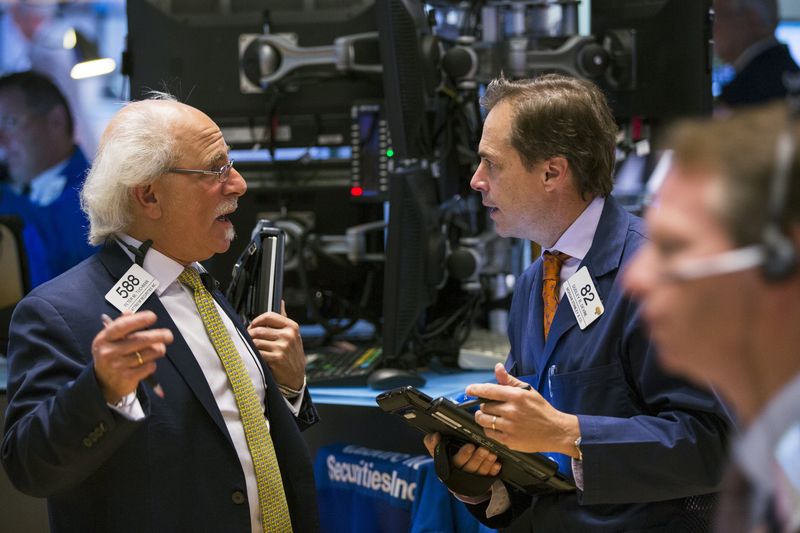Investing.com - Here are the top five things you need to know in financial markets on Tuesday, September 11:
1. China requests WTO permission for trade sanctions on U.S.
In the latest chapter of the U.S.-China trade dispute, Beijing will ask the World Trade Organization for permission to impose sanctions on the U.S.
According to a WTO meeting agenda released on Tuesday, China will officially place the request next week as part of a dispute over U.S. dumping duties that China started in 2013.
Beijing appears to be following the WTO rule book in response to U.S. President Donald Trump’s remarks that he was ready to impose an additional $467 billion in tariffs on Chinese goods. The total figure essentially covers all of China’s imports to the U.S.
China has stated that it would retaliate with approximately $60 billion in tariffs on U.S. goods.
2. 2-year Treasury yields hover near decade high
U.S. Treasury yields continued to climb higher on Tuesday, with the yield on the 2-year hitting 2.736%, its highest level since July 2008.
The move came off the back of last Friday’s employment report which showed wage inflation accelerating more than expected, backing the Federal Reserve’s plan to gradually increase interest rates.
While only the Job Openings and Labor Turnover survey (JOLTS) is scheduled for release on Tuesday, investors await the Wednesday’s publication of the Fed Beige Book which provides details on the economic conditions of the 12 Fed districts, along with data on factory gate inflation.
Thursday will be key for inflation watchers and the Fed as the U.S. releases the consumer price index.
3. U.S. futures retreat on China action
U.S. futures extended losses as news broke that China was not backing down in its trade dispute, planning to take the case to the WTO. With little on Tuesday’s economic agenda, investors will likely continue to watch developments over trade tensions between the world’s two largest economies.
At 6:02 AM ET (10:02 GMT), the blue-chip Dow futures fell 84 points, or 0.32%, S&P 500 futures lost 5 points, or 0.17%, but the Nasdaq 100 futures traded down 15 points, or 0.20%.
Elsewhere, a recovery in European shares stalled on Tuesday as uncertainty over a trade dispute between Washington and Beijing kept investors on edge. A day earlier, little progress was made in trade talks between European and American officials. While Robert E. Lighthizer, the U.S. trade representative, called the talks “constructive”, further negotiations were set for the end of the month.
Earlier, Asian stocks ended the session mixed amid concerns over the U.S.-Sino trade conflict being balanced slightly by news that North Korea and the U.S. were preparing a second summit.
4. Emerging markets pause before central bank flood
Equities in emerging markets took a pause on Tuesday, while their currencies stabilized ahead of monetary policy decisions from several of the most hard-hit countries.
Argentina kicks off Tuesday with its monetary policy meeting, the first since an emergency rate hike to 60% last month, while Turkey and Russia will follow on Thursday and Friday.
All that comes ahead of the Federal Reserve’s own meeting later this month, at which the U.S. central bank is expected to maintain its tightening path.
Speculation is rampant as investors wait to see if policymakers will respond to recent stress and whether all of the negative news is already priced in. Fears remain, with emerging-market currencies already at their lowest level since April 2017, as markets worry over the escalation in the U.S.-China trade dispute.
5. Oil prices rise as Washington looks to offset supply reduction from Iran sanctions
Oil prices rose on Tuesday as U.S. sanctions squeezed Iranian crude exports, tightening global supply despite efforts by Washington to get other producers to increase output.
U.S. crude oil futures gained 0.28% to $67.75 at 6:13 AM ET (10:13 GMT), while Brent oil traded up 0.74% to $77.94.
U.S. Energy Secretary Rick Perry met Saudi Energy Minister Khalid al-Falih on Monday in Washington, as the Trump administration encourages big oil-producing countries to keep output high in an effort to lower prices. Perry will meet with Russian Energy Minister Alexander Novak on Thursday in Moscow.
Separately, Russian Energy Minister Alexander Novak said on Tuesday that the major oil producers may sign a new long-term cooperation deal at the beginning of December, the TASS news agency reported.
